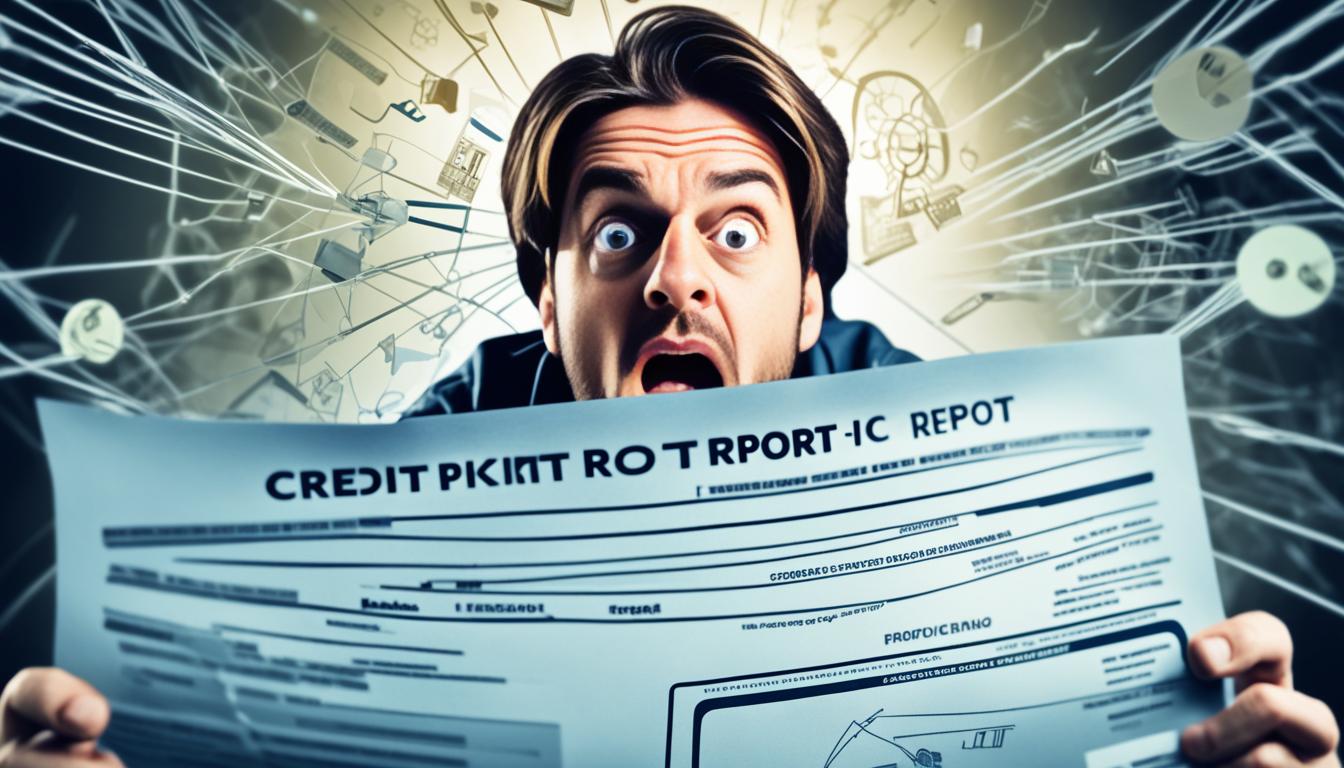
Unfair credit reporting is a big issue for many people today. Wrong info on credit can make it hard to get loans or mortgages. This often comes from mistakes on credit reports that people can’t fix themselves.
It’s important for consumers to know how these mistakes can hurt their financial health. They can make it hard for lenders to trust you. So, learning about fair credit practices is key for your financial well-being and building trust in the financial world.
When dealing with credit reports, it’s important to make sure the info is correct. Knowing about unfair credit reporting helps protect your credit score from mistakes. This knowledge lets you fix wrong info and improve your financial future.
Key Takeaways
- Unfair credit reporting can lead to damaging financial implications.
- Understanding your credit report is vital for protecting your creditworthiness.
- Inaccurate information on credit often arises from errors beyond personal control.
- Taking proactive steps to address inaccuracies is essential for financial health.
- Fair credit practices build trust within the financial system.
Understanding Credit Reporting and Its Importance
Credit reporting is key to your financial chances. It shows your credit history, including payments and inquiries. This info helps you get loans, mortgages, and jobs. Knowing how credit reports work can help you better your financial health.
What Is a Credit Report?
A credit report is a detailed look at your credit history. It lists important info like:
- Personal details, including name, address, and Social Security number
- Accounts you have, like credit cards and mortgages
- How you’ve paid, showing if you paid on time or late
- Inquiries from lenders when you applied for credit
- Public records, like bankruptcies or liens
Each part of your credit report affects your credit score. Lenders use this score to see if you’re a good borrower and set interest rates.
How Credit Reports Affect Your Financial Health
Credit reports are crucial when you apply for loans. Lenders look at them to decide on things like:
- Interest Rates: Better credit scores mean lower interest rates, which saves you money.
- Loan Terms: A good credit report can get you better repayment terms, making loans easier to handle.
- Purchasing Power: A strong credit report opens doors for big buys like homes and cars.
Keeping your credit report accurate is key to good financial health. It protects your future investments too.
Common Issues in Credit Reporting
Credit reporting is key to knowing your financial options. Sadly, many people find errors on their credit reports that hurt their financial health. Knowing about these errors can help protect your credit score.
Types of Credit Report Errors
There are many reasons for credit report errors, such as:
- Misspelled names
- Incorrect account balances
- Data duplication
- Accounts belonging to someone else
These mistakes can hurt your credit score and the trust in credit reporting. It’s important to check your credit report often to fix these errors quickly.
The Impact of Inaccurate Credit Scores
Wrong credit scores from errors can cause big problems. A low score makes getting loans, credit cards, or good interest rates hard. Lenders look at these scores to see if you’re trustworthy. So, a mistake can limit your financial options.
Checking your credit report often is key to knowing your financial health. Fixing any errors helps avoid financial problems caused by reporting mistakes.
Unfair Credit Reporting: A Deeper Look
Unfair credit reporting happens when companies break the rules set by the Fair Credit Reporting Act. This can really hurt people who are trying to keep their credit in good shape. It’s important for consumers to know what unfair reporting looks like to protect themselves.
What Constitutes Unfair Credit Reporting?
Unfair credit reporting can show up in different ways, such as:
- Failure to properly investigate disputes: Credit bureaus might not look into errors raised by consumers well enough.
- Sharing old or wrong information: People can be hurt by data that’s outdated or not correct and can’t easily fix it.
- Ignoring consumer rights: Sometimes, bureaus don’t tell consumers about their rights, making it hard for them to fight wrong information.
Examples of Unfair Practices by Credit Bureaus
Many people feel credit bureaus don’t take responsibility, which can block their financial chances. Some unfair practices include:
- Not updating records: Credit bureaus might not take off old debts or mistakes, so people get unfairly low credit scores.
- Not giving good answers to disputes: When consumers point out errors, they often get little help or solutions.
- Wrongly reporting payments: Some agencies incorrectly say payments are late, which can hurt how people look to lenders.
Consumer Credit Rights and Protections
It’s vital to know your consumer credit rights to handle credit reporting well. The Fair Credit Reporting Act (FCRA) gives you certain protections. These ensure your credit info is correct and fair. You have the right to correct any mistakes in your credit report.
If you spot errors, you can get accurate info. This way, your financial choices are based on the truth.
Rights Under the Fair Credit Reporting Act
The FCRA lets you ask for changes to your credit report if you find mistakes. You can dispute wrong entries and expect the credit bureaus to look into it. You also get free copies of your credit report once a year to keep an eye on your finances.
Knowing these rights boosts your protection against unfair credit practices.
How to Assert Your Consumer Credit Rights
To use your credit rights, first check your credit reports for mistakes. If you find any, tell the credit bureau and give them proof. Make sure to follow up, as they must answer you within a certain time.
There are resources like consumer groups and government sites that can help you with the dispute process. They explain your rights well. By taking action, you protect your financial future from bad credit reporting.



